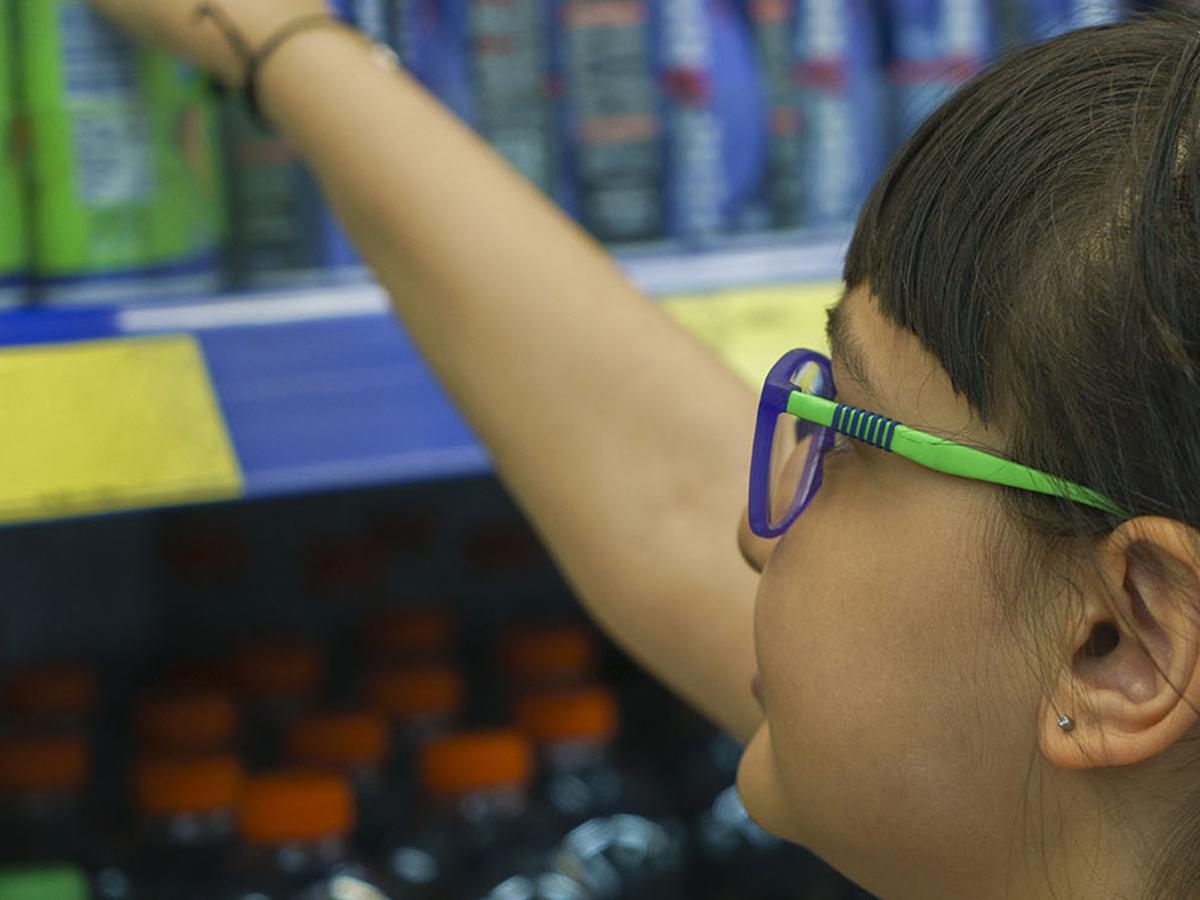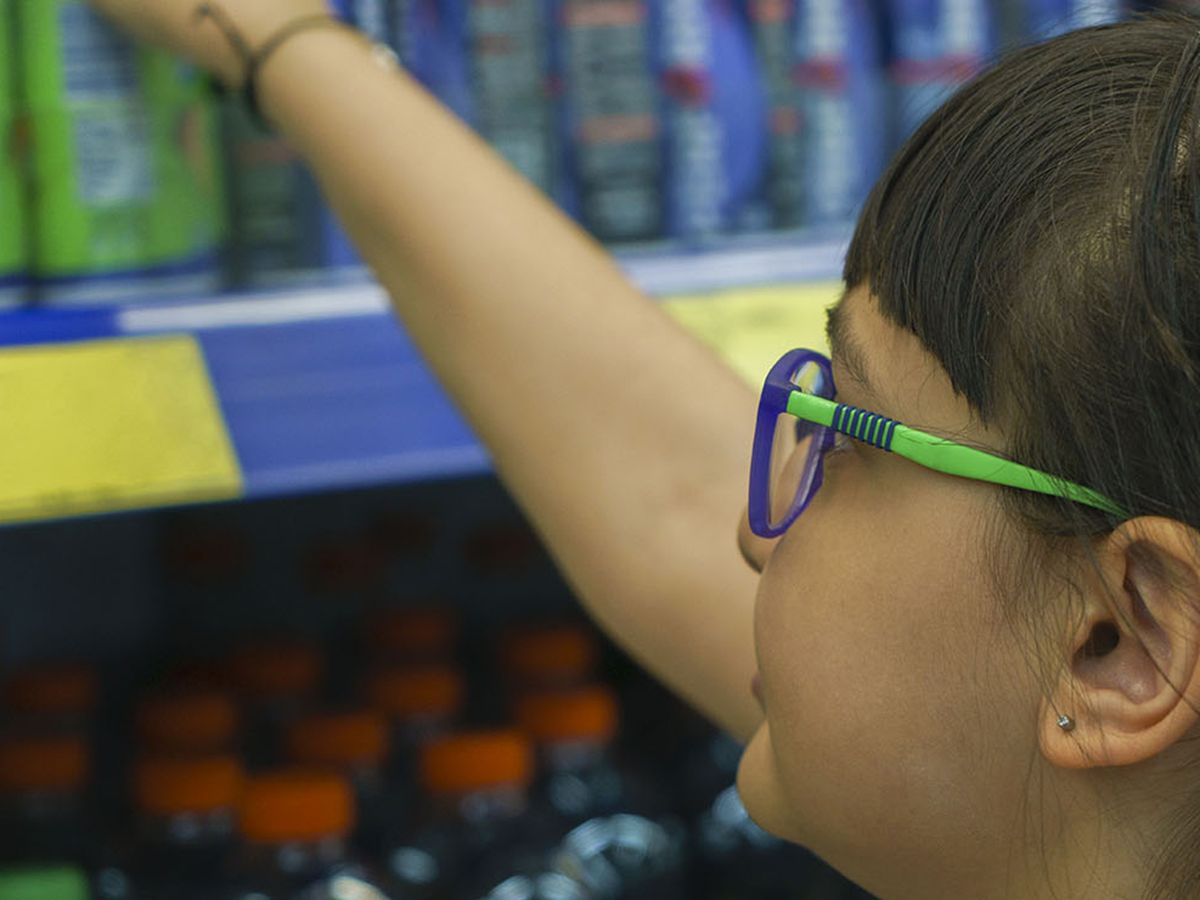October 22, 2025

Peek at the beverage case in any convenience store and you'll see that soda isn’t the craze it once was. Instead, soda now shares cooler space with amped-up waters, sports drinks and, you guessed it, energy drinks.

If you grew up at a time when soda ruled, you may be wondering what the big deal is — kids have always been exposed to caffeinated, sugary drinks with less nutritional value than a candy bar. But energy drinks are different in ways you may not realize.
"Don't let the packaging fool you," says Regina DePietro, MD, a family medicine doctor and obesity medicine specialist at MU Health Care. "Many energy drinks have cool or vague names and come in visually appealing cans that have images of fruit on the front — your child may even grab one without realizing what it is. But all kids under 18 should avoid energy drinks."
Up to 50% of teens report consuming energy drinks, and many high schools even sell them in vending machines and snack bars.
Dr. DePietro shares what you need to know to help your child navigate a world where energy drinks are everywhere:
Energy Drinks vs. Sports Drinks vs. Soda
Let's be honest, no drink in this group is a healthy choice for your child. They all contain sugar or a sugar substitute and offer no nutritional value. However, Dr. DePietro says energy drinks differ from the others in two ways: caffeine level and Food and Drug Administration (FDA) regulation.
The FDA does make sure that the ingredients in all these drinks are "generally recognized as safe." But some energy drink manufacturers choose to classify their product as dietary supplements instead of food. In those cases, the FDA doesn't regulate the amount of each ingredient in the drink — that includes caffeine.
Dangers of Energy Drinks
Energy drinks, and how they affect your child, may have some immediate and long-term health effects.
Here are 4 facts to consider:
1. Most Energy Drinks Have More Caffeine Than Soda or Coffee
Energy drinks can deliver a lot of caffeine in one serving. For children, it's especially concerning because the American Academy of Pediatrics says that caffeine has no place in the diet of a child or adolescent. Keep in mind, kids also get caffeine from foods such as chewing gum or chocolate-flavored foods.
Caffeine levels in any drink vary depending on manufacturing, ingredients and serving size. But to put caffeine levels into perspective, compare the amount of caffeine in a 12-ounce serving of these caffeinated drinks:
- Soda: 23 to 83 milligrams (mg)
- Green tea: 37 mg
- Black tea: 71 mg
- Coffee: 113 to 247 mg
- Energy drinks: 41 to 246 mg
It's important to note that the standard energy drink serving is typically 16 ounces. That means when your child drinks a 16-ounce energy drink, they could be consuming more than 300 mg of caffeine.
2. "Zero Sugar" Energy Drinks Typically Contain Unhealthy Sugar Substitutes
Kids are supposed to avoid eating too much sugar, so they may think they are making a smart choice when they choose a "zero sugar" energy drink.
"Energy drinks still have additives that can taste even sweeter than sugar," Dr. DePietro says. "They are non-nutritive and don't have the calorie content of full sugar. Plus, 'fake sugars' can be just as addictive as real sugar."
Remember, not all energy drinks are sugar-free either.
"One popular brand has 58 grams of sugar in one can," Dr. DePietro says. "That's four servings of carbohydrates for a child and the amount that a grown male should have for a meal."
3. Caffeine Intoxication Can Cause Acute Health Issues
Caffeine activates your sympathetic nervous system — also called your "flight-or-fight" response — which keeps you awake and gets your body going.
The problem is that too much caffeine ("caffeine intoxication") can overstimulate that system and potentially cause health effects, such as:
- Abnormal heartbeat (arrhythmia)
- Aggressive behavior
- Dehydration
- Diarrhea
- Seizure
- Sleeping issues
"It's about how much caffeine they consume but also how fast they consume it," Dr. DePietro says. "Children who have too much caffeine all at once can get a kind of toxic caffeine reaction."
Dr. DePietro says the risk of an acute reaction is higher for children who don't eat a nutrient-dense diet. Kids who take stimulant medications, like those taken for attention-deficit/hyperactivity disorder (ADHD), should also be cautious. Those medications don't contain caffeine, but they also stimulate the sympathetic nervous system.
"You always want to be careful when mixing high amounts of caffeine with stimulant medications," she adds. "They affect you in slightly different ways but both act on the nervous system."
4. Energy Drinks Can Indirectly Affect Your Child's Development
Energy drinks, and the caffeine they contain, may start to affect your child's sleep or suppress their appetite — both of which can have long-term effects on their health.
"If a child is not getting adequate sleep, it can affect how well they grow and function," Dr. DePietro says. When kids are overstimulated, you also need to keep an eye on their eating habits. "They can become so stimulated that they don't eat enough or choose the nutritious foods their growing body needs."
How to Minimize Your Child's Desire for Energy Drinks
Keeping your child from wanting energy drinks can be tricky, especially when they are exposed to social media influencers and clever marketing tactics.
Dr. DePietro recommends:
- Educate kids about energy drinks, explaining the caffeine they contain and showing them how to read the labels on the drinks they choose.
- Model good behavior by drinking mostly water, milk and an occasional glass of 100% juice.
- Reduce access to energy drinks by stocking your house with healthy alternatives and contacting the school district about the availability of energy drinks at school.
If your child is so tired in the morning or late afternoon that they are begging for an energy drink or some form of caffeine, it may be time to involve a doctor. There could be an underlying health issue. Your child’s primary care doctor can evaluate your child's sleep, nutrition and overall health.
Next Steps and Useful Resources
- Want to discuss more? Speak with a pediatrician or family medicine doctor.


